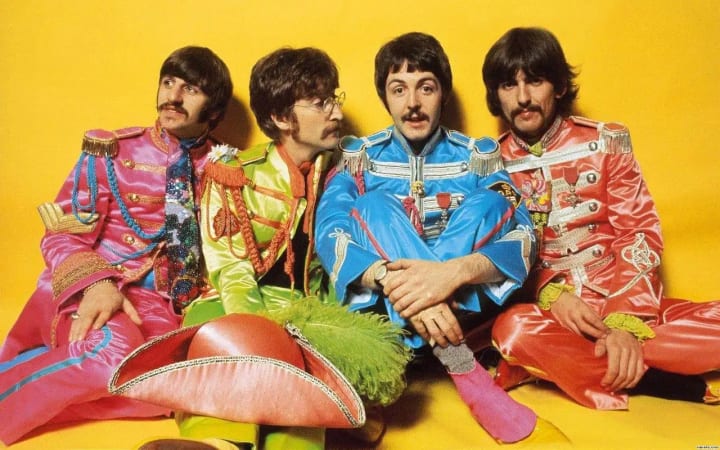
Released in 1971, Don McLean’s American Pie has been hailed as a musical masterpiece. At over eight minutes long, it is one of the longest songs to ever top the Billboard Hot 100. Aside from its catchy sound and instantly recognisable chorus, American Pie is also very well-known for its distinct lyrics.
With its opening verses quite clearly describing the aftermath of the plane crash that killed Buddy Holly, Ritchie Valens, and the Big Bopper, McLean’s phrase “the day the music died” has been popularly used to refer to the tragedy. However, the rest of the song’s words are far more vague and open to interpretation.
For decades, McLean has refused to explicitly divulge the song’s full meaning. This has led to all manner of debate and analysis about the true story behind American Pie. Everybody from casual fans to seasoned musical experts have put forward their own interpretations of the iconic song.
However, starting in 2015, when McLean auctioned off the original manuscript for the song, he has been more forthcoming about American Pie’s actual meaning. Now, over 50 years after its release, Don McLean himself has gone over the lyrics he wrote half a century ago and has put to rest many of the long-held interpretations and speculations that have lingered all these years.
Let’s take a look at the lyrics of American Pie as explained by Don McLean himself!
Disclaimer: This is not a line-by-line analysis of the entire song but rather an explanation of some of its most famous lyrics, as clarified by Don McLean. Without further ado, let’s begin!
Bye-Bye, Miss American Pie

One of the overarching themes of American Pie is the change in music, the world, and the gradual loss of innocence of McLean and those around him in the years following the plane crash. Thus, he bids farewell to “American Pie” or his youth's earlier, more innocent days.
So what exactly is American Pie?
McLean chose the phrase American Pie because he wanted something that could reflect the imagery of early 1950s America. Thinking of the saying “as American as apple pie,” McLean had originally intended for the song’s chorus to go “ Bye-Bye Miss American Apple Pie,” but the word apple was soon dropped.
Thus, the song’s title is a reference to an earlier, more idyllic time when simpler things like apple pies were enough to define the age.
This’ll Be The Day That I Die

Another of American Pie’s most recognisable pieces of lyrics, “This’ll be the day that I die,” is sung at the end of the song’s chorus. It is also a very interesting lyrical choice as multiple references are layered upon one another here.
Originally, the line originates from the 1956 Western film, The Searchers, starring John Wayne. In the film, Wayne’s character’s main catchphrase was “That’ll be the day.” He would often say the catchphrase in sarcastic defiance whenever something bad was wished upon him or if he did not believe in the likelihood of something happening.
As John Wayne Westerns were especially popular among the youth at the time, McLean admitted to adapting the popularly used phrase for American Pie. However, the references go deeper.
Just a year following the film's release, Buddy Holly took inspiration from The Searchers and recorded his hit song That’ll Be The Day. In hindsight, it was an extremely clever move on McLean’s part to borrow a line from a film that was reflective of the time for his song in the very same way that the subject of that same song did as well.
The Jester

Throughout the course of American Pie, Don McLean sings about various people referred to only by nicknames. Over the years, many possible theories have emerged about the possible identities of these mysterious figures- and for a period of time, they seemed pretty solid.
One such example is the individual known as “The Jester.” For as long as most fans can remember, it was commonly accepted that the person referred to by this nickname was none other than Bob Dylan. The line “with the Jester on the sidelines in a cast” was often assumed to be a reference to Dylan’s 1966 motorcycle accident which had put him on a temporary hiatus.
When interviewed, Dylan did not seem all that pleased about being “The Jester” and expressed doubts that he was the intended recipient of that moniker to begin with. McLean would also come out to categorically deny referring to Dylan as either “The Jester” or anywhere else in the song. McLean further clarified that had he wanted to mention Dylan in the song, he would have called him by name as he did James Dean.
The King

Referred to many times in American Pie, “The King is often believed to be a plethora of famous people ranging from John F. Kennedy to The King of Rock n Roll himself, Elvis Presley. More knowledgeable fans have also pointed out “The King” being part of the name of a bar where Bob Dylan performed.
The Elvis theory, in particular, was far from baseless. In previous interviews, McLean recalled how he and his peers listened more to The Everly Brothers than Elvis in his youth. Referring to Elvis as “a little dangerous and a little greasy” and to The Everly Brothers as “clean-cut,” it seemed perfectly in line with American Pie’s theme of the loss of childhood innocence.
However, this theory has since been conclusively quashed by McLean. Directing listeners to the line “The Jester stole his (The King’s) thorny crown,” McLean stated that he could not have possibly referred to Elvis as Elvis did not wear a thorny crown. He further stated that it was Jesus who wore a crown of thorns and once again reiterated the fact that if he had wanted to refer to Elvis, he would have done so by name.
Thus, contrary to popular belief, “The King” was not a reference to Elvis Presley losing his popularity to Bob Dylan but rather a perceived case of morally questionable music becoming more popular than institutions like religion. As McLean was raised a Catholic, such a connection is just as well-founded.
The Girl Who Sang The Blues

A slightly shorter one here, another popular figure in American Pie, was “the girl who sang the Blues.” Mentioned briefly in the song as unable to give McLean “some happy news” after she “just smiled and turned away,” many believe this to be a reference to Janis Joplin. Joplin was a popular singer at the time but died of an overdose in 1970.
For many years, this was also commonly accepted as fact, but McLean once again dismissed those assertions completely. Denying that he was referring to Janis Joplin — or anyone in particular — McLean seems to have written this part of American Pie to be taken at face value.
McLean himself stated that after receiving bad news at the start of the song, he simply sought out a person to give him some better news towards the end. However, this person could not do so as well, and that was all to it apparently.
Lenin Read A Book On Marx

Going from a reference that ought to have been taken at face value but wasn’t to the complete opposite, we have the line “and while Lenin read a book on Marx.” Listeners to the song almost unanimously believe this was a reference to the rise of Communism following Vladimir Lenin’s acceptance of Communism after reading Karl Marx’s Communist Manifesto.
To be fair, there was little room for interpretation here as Lenin and Marx are both explicitly mentioned by name. However, listeners were only half right. In addition to the reference to the rise of Communism as a whole, McLean has mentioned that the “Lenin” in question was not only a reference to the Soviet Leader but also to “Lennon” as in John Lennon of The Beatles.
McLean himself stated that “communism radicalised John Lennon, and Lenin was radicalised by Marx.” Thus, this simple line has taken on a deeper meaning, with McLean wanting to show how Communism can affect even the most influential and popular people of the age.
The Birds Flew Off With A Fallout Shelter. Eight Miles High And Falling Fast

While most of this article consists of McLean disproving many long-held assertions about American Pie, it seems that the theories on this verse pretty much hit the nail on its head. Fans and analysts have pointed out how this verse references The Byrds and their song Eight Miles High.
Often regarded as the first Psychedelic Rock song, Eight Miles High was heavily banned due to its numerous allusions to the use of psychedelic drugs. The term “fallout shelter” was slang for a rehabilitation facility, where one of The Byrds checked in shortly after the song's release.
Just as the lyrics describe, “eight miles high and falling fast.” The Byrds’ song did not find any major success due to the ban, and the group themselves soon fell by the wayside after an attempt to change genres and reshuffle the line-up.
McLean himself has explicitly stated that “eight miles high” was taken from a song but did not elaborate further. Thus, lending credence to the fact that he was indeed referring to The Byrds in particular. While not expanding on any particular names, McLean mentioned that the purpose of this verse was to show that the rampant use of psychedelic drugs was no longer something to take lightly.
The Marching Band

Over the years, many people have often interpreted “The Marching Band” as being The Beatles following the success of Sgt. Pepper’s Lonely Hearts Club Band. The fact that they “refused to yield” was often assumed to be a reference to either their dominance over the music scene or the unyielding drive to push music into an increasingly experimental direction.
McLean, however, has said that “The Marching Band” was a reference to the military-industrial complex. With particular reference to the Vietnam War, McLean sought to write about how those who were against the war were pushed aside and manhandled for their protests.
McLean further elaborated that “The Sergeants” referred to law enforcement and that the “sweet perfume” was the tear gas they used to keep protestors under control. Thus, despite what seems to be a clear allusion to the Fab Four, McLean was writing about how profit from war seemed more important than the good, clean values he found more commonplace in his youth.
That does it for this article! If you made it this far, let me thank you for taking the time to read this! It was fascinating to finally uncover the true meanings of some of music’s most hotly debated and analysed lyrics. It certainly adds a new perspective to McLean’s state of mind and the overall theme of moral degeneration and the loss of innocence in American Pie.
Do let me know if I have missed out on any other lyrical clarifications and if I did, please leave them in the comments. I’d love to discover more interesting little tidbits about this legendary song. Until then, take care!
About the Creator
Isa Nan
Written accounts of life, death and everything in between






Comments
There are no comments for this story
Be the first to respond and start the conversation.